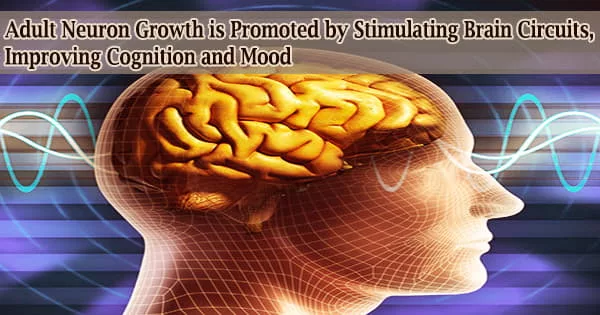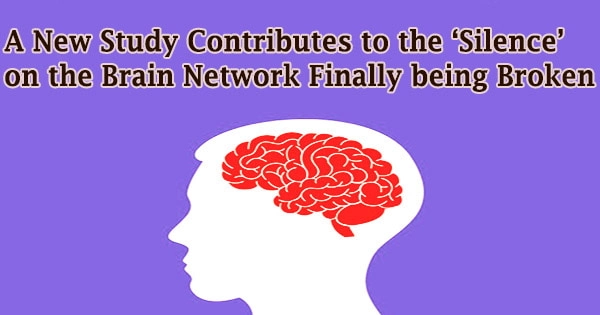Humans lose mental acuity as we age, which is a terrible side effect of growing older. The loss of cognitive ability, which is typically accompanied by mood disorders such as anxiety, is a dreadful experience for people with neurodegenerative diseases like Alzheimer’s and Parkinson’s.
One strategy to combat cognitive decline and anxiety is to encourage the growth of new neurons. For the first time, researchers at the University of North Carolina School of Medicine have used a specific type of neuron in mice to boost the production of neural stem cells and encourage the formation of new adult neurons, affecting behavior.
In mice, targeting these cells modified memory retrieval and altered anxiety-like behaviors, according to a study published in the journal Nature Neuroscience. The UNC researchers essentially increased the electrical activity between cells in the hypothalamus and hippocampus in order to make new neurons, a process known as neurogenesis.
“Targeting the hypothalamic neurons to enhance adult hippocampal neurogenesis will not only benefit brain functions,” said senior author Juan Song, PhD, associate professor of pharmacology, “but also holds the potential to treat cognitive and affective deficits associated with various brain disorders.”
Neurons are formed by a process known as neurogenesis, which happens primarily during the nervous system’s prenatal development when the growing brain is populated. Progenitor cells develop in mitotic cycles, diversify, and give rise to neuroblasts and glioblasts in the ventricular zone of the embryonic neural tube.
Neuroblasts and glioblasts will eventually differentiate into neurons and glial cells. The majority of the neurons we have for the rest of our lives were produced before we were born and arranged during childhood.
Neurogenesis, on the other hand, continues into adulthood and throughout life. In fact, the halting of neurogenesis is one of the causes of cognitive decline, anxiety, and even disorders like Alzheimer’s.
Targeting the hypothalamic neurons to enhance adult hippocampal neurogenesis will not only benefit brain functions. But also holds the potential to treat cognitive and affective deficits associated with various brain disorders.
Juan Song
Song, a UNC Neuroscience Center member, has been researching the intricate interplay between brain cells that keeps neurogenesis going. She was aware that adult hippocampus neurogenesis is important for memory and emotion processing, and that neural circuit activity, or ‘electrical activity,’ regulates this process in a dynamic way.
Nobody knew if this brain circuit activity could be altered to increase neurogenesis to the point where the result would be observed as a change in behavior, such as improved memory or reduced anxiety.
The activity of an overlapping network of brain regions is controlled by mood and cognition, according to neuroimaging findings. Changes in perception, attention, memory and executive functioning have been shown in depressed people in studies.
The Song lab conducted tests led by co-first authors Ya-Dong Li, PhD, and Yan-Jia Luo, PhD, both postdoctoral fellows, to investigate what effect altering brain activity had. They employed optogenetics, which is a method of utilizing light to induce neuronal activity in the supramammillary nucleus, a small brain structure (SuM).
The SuM is a part of the brain’s hypothalamus that aids with everything from cognition to movement and sleep/wakefulness. Song’s team reported a robust enhancement of neurogenesis at different stages when they persistently activated the SuM neurons.
They saw an increase in neural stem cell production as well as the formation of new adult-born neurons with improved characteristics. The memory and anxiety-like behaviors were subsequently modulated by optogenetic stimulation of these new neurons.
“We also show that the SuM neurons are highly responsive when the mice experienced new things in their environment,” Song said. “In fact, in a new environment, mice require these cells for neurogenesis.”
Adult hippocampal neurogenesis dysfunction is linked to a variety of clinical conditions, including aging, neurodegenerative diseases, and mental illnesses.
“Therefore,” Song added, “targeting the hypothalamic neurons to enhance adult hippocampal neurogenesis will not only benefit brain functions but also holds the potential to treat cognitive and affective deficits associated with various brain disorders.”
Other authors are Ze-Ka Chen, Luis Quintanilla, and Libo Zhang at UNC-Chapel Hill; Yoan Cherasse and Michael Lazarus at the University of Tsukuba, Japan,; and Zhi-Li Huang from Fudan University, China. The National Institutes of Health, the Alzheimer’s Association, and the Brain & Behavior Research Foundation’s NARSAD Young Investigator Award supported this study.
















